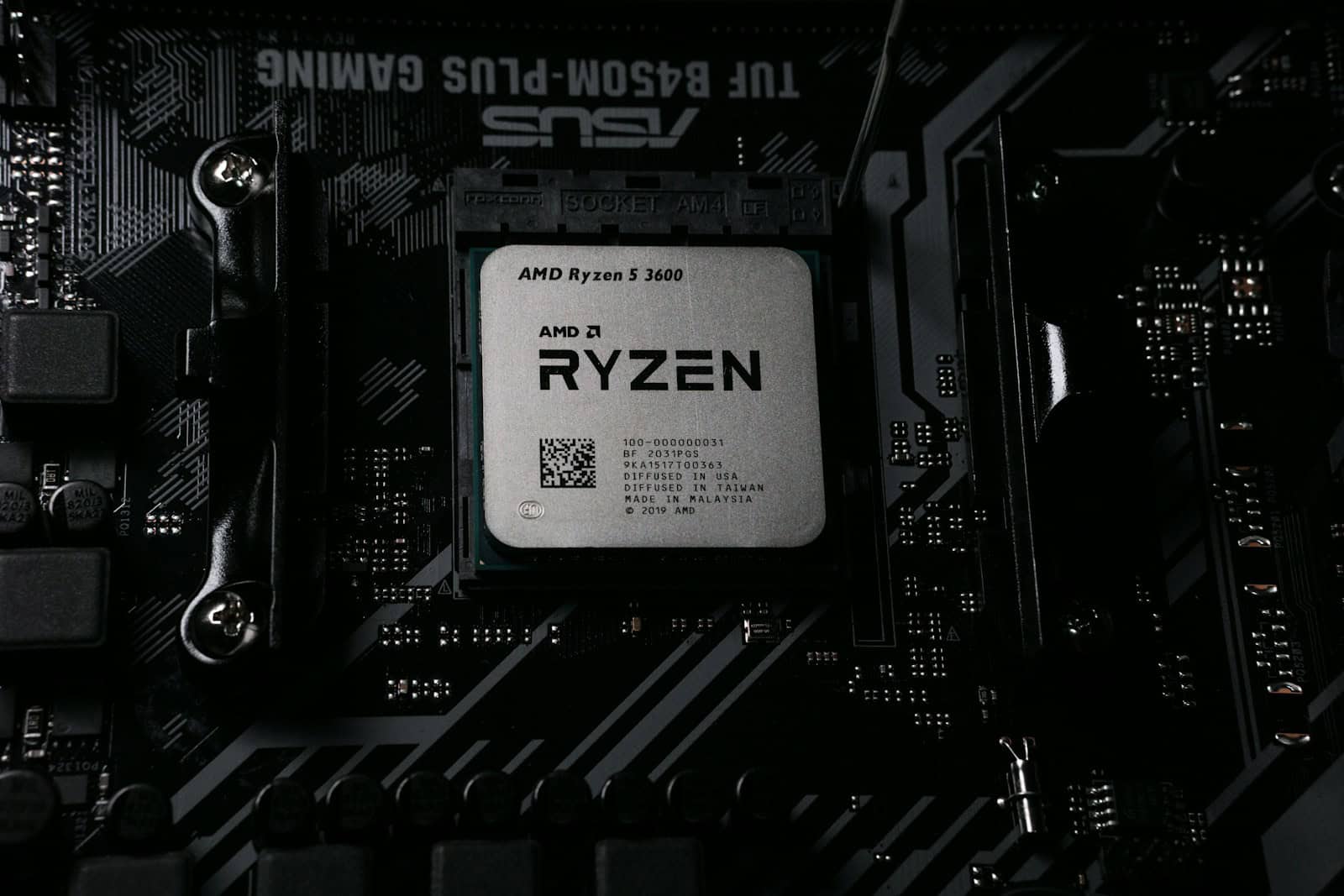AMD, also known as Advanced Micro Devices, has made significant strides in the world of computing. Once seen as a budget-friendly option compared to its competitors, AMD has transformed into a brand that competes on equal footing with industry giants. It’s not just about price anymore. AMD has become synonymous with innovation and performance, earning a reputation for delivering processors that meet a diverse range of computing needs.
The company has managed to capture the attention of consumers and professionals alike by offering CPUs that handle intense multitasking and heavy workloads with ease. This shift in market position is notable, not just for the brand’s growth but also for providing customers with more choices. AMD’s rise challenges the status quo and ensures that the processor market remains competitive, which is beneficial for consumers looking for high-quality options.
AMD CPUs: Performance and Value
AMD has become a major player in the CPU market, offering processors that rival Intel’s offerings in performance and often beat them in value. AMD’s Ryzen processors have been praised for their multi-core performance, making them ideal for tasks like video editing, 3D rendering, and content creation. They also hold their own in gaming, often matching or exceeding Intel’s performance in many titles.
AMD’s Strengths
- Multi-Core Performance: Ryzen processors typically have more cores and threads than their Intel counterparts at similar price points, giving them an edge in multi-threaded workloads.
- Value: AMD CPUs often offer better price-to-performance ratios than Intel, making them a popular choice for budget-conscious builders.
- Platform Longevity: AMD has committed to supporting their AM4 socket for several generations of processors, meaning you can upgrade your CPU without replacing your motherboard.
- Overclocking: Most Ryzen processors are unlocked for overclocking, allowing users to squeeze out extra performance if desired.
- Integrated Graphics: Some Ryzen CPUs come with integrated graphics (APUs), which can be a good option for budget builds or home theater PCs.
AMD’s Weaknesses
- Single-Core Performance: While Ryzen excels in multi-threaded tasks, Intel still holds a slight edge in single-core performance, which can be important for some games and applications.
- Power Consumption: Ryzen processors can consume more power than Intel CPUs, which can lead to higher temperatures and potentially increased electricity costs.
- Platform Cost: While AMD CPUs themselves can be a good value, the AM4 platform (motherboard and memory) can be more expensive than Intel’s equivalent.
AMD Ryzen CPU Lineup (Current Generation)
| Series | Target Audience | Core Count | Key Features |
|---|---|---|---|
| Ryzen 9 | Enthusiasts, Content Creators | 12-16 | Highest performance, multi-threaded workloads |
| Ryzen 7 | Gamers, Power Users | 8 | Excellent for gaming and productivity |
| Ryzen 5 | Mainstream Users | 6-8 | Balanced performance for everyday tasks and gaming |
| Ryzen 3 | Budget Users | 4 | Good for basic tasks and light gaming |
Should You Choose AMD?
AMD is a great choice if you’re looking for a powerful, multi-core processor for a reasonable price. Their Ryzen CPUs offer excellent performance for content creation, productivity, and gaming. However, if single-core performance is your top priority or you’re on a very tight budget, Intel might still be a better option. Ultimately, the best choice depends on your individual needs and budget.
Key Takeaways
- AMD has emerged as a prominent player in the CPU market, providing competitive and innovative processor options.
- The brand’s progress reflects a shift from a budget alternative to a direct competitor with leading companies.
- AMD’s ability to handle demanding tasks makes it a suitable choice for diverse computing requirements.
Evaluating AMD’s Market Position
When it comes to understanding AMD’s role in the tech industry, a close look at the company’s market position is key. A variety of factors come into play, from brand trust to competition and innovation.
Brand Reputation and Consumer Trust
AMD is known for quality and reliability, which breeds trust among users. Gaming enthusiasts and professionals often pick AMD for their needs.
Comparison with Competitors
AMD stands strong among giants like Intel and Nvidia. Its processors and graphics cards often find themselves listed among the best in tech reviews on platforms such as TechRadar.
Product Range and Innovation
The brand’s innovations include the Ryzen 9 7950x and the Radeon GPUS. AMD’s product range appeals to both high-end users and those on a budget.
Performance Metrics
Benchmarks often show AMD’s CPUs and GPUs, such as the Ryzen 7 7800X3D, delivering exceptional performance, especially in gaming and 3D rendering.
Pricing Strategy
AMD products often offer more at lower price points than competitors. This value for money strengthens their market position.
Target Audiences
Gamers and content creators make up AMD’s primary audience. The company tailors its GPUs and CPUs, like the Ryzen 5 7600, to meet their demanding power and efficiency needs.
Technological Advancements
AMD pushes tech boundaries, exemplified by its Ryzen CPUs supporting DDR5 RAM and Radeon GPUs equipped with GDDR6 memory.
Market Segment Performance
High-performance segments see AMD competing fiercely, with products like the RX 6800 XT offering high power at competitive prices.
Consumer Feedback and Trends
Positive reviews from the gaming community reflect well on AMD. Enthusiasts appreciate the balance of power consumption and performance.
Future Outlook and Company Roadmap
AMD focuses on growth and innovation. With upcoming releases, they are ready to meet the newer demands of the tech world, keeping an eye on power efficiency and software compatibility.







